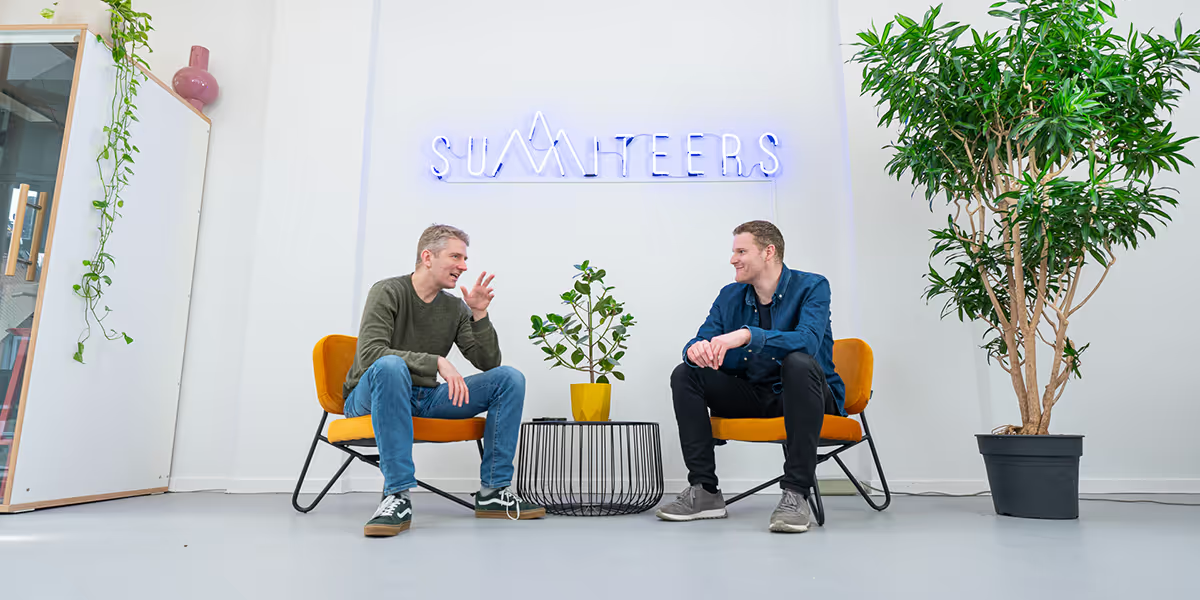Everyone will recognize it. Sometimes you show certain behaviors that you want to change to become more effective in daily life. In this blog, Paul van Bekkum, one of the founders of Summiteers, shares his insights and experiences about how behavioral change works and how you can apply it to become a better version of yourself
Autopilot
When you're at the start of your career, you're probably doing your utmost to fit in with the people around you. The older we get and the more experience we have, the more we do things on autopilot. We rely on our intrinsic behaviors and habits, and behavioral change is becoming increasingly challenging. Of course, for example, you might think: What difference does it make if I'm interrupting others all the time, they think I'm a cool persoon. But how nice would you be — especially for others — if you decide to do something about this behavior?
No offense
Undoubtedly, there are people who deliberately want to hurt others with their behavior, but most of the behavior that has an unpleasant effect is not meant to be hurtful at all. Often people are mainly concerned with themselves when they deliver a message, and have no idea how the other party experiences that. Only when they take a moment to think about it do they realize that maybe they should have done things differently. But if you don't work on that structurally, things often go wrong in the heat of the moment.
The how question
At Summiteers, we pay a lot of attention to behavioral change in our work. One of the most important challenges in the field of behavioral change is the how question: how do you replace an existing behavior pattern with a more desirable one? How can you learn to behave differently at that crucial moment?
Maslow's four learning phases
There are several behavioral methodologies that you can use to change behavior. Regardless of the methodology you choose, you'll actually go through the four learning phases described by Maslow. Let's take the example of the colleague who always interrupts others and takes over the conversation. It starts with “unconsciously incompetent”, where you don't realize that you often take over the initiative from a colleague during a conversation.
The power of awareness
The first step towards behavioral change is awareness. You need your environment to make you aware of that behavior. You can do this explicitly by asking for it. What would you like me to do differently? What would you give me? But also implicitly, learn to listen to the signals that others give you “between the lines”. This is when you realize that you are engaging in certain behaviors that you want to change. You realize that you often dominate the conversation at the expense of your colleagues. Initially, this usually happens afterwards. Only after something happened, for example, do you realize: I did it again, I immediately took over the conversation. In short, you are deliberately incompetent.
Find and replace
Only when you have practiced this enough can you proceed to a kind of 'find and replace'. For example, agree with yourself that when you find yourself interrupting others, you won't say anything for a while. Wait for the other person to make their point and then wait a little longer before responding. Of course, you can also build in an extra “barrier” for yourself. That's how I taught myself to turn off my headset microphone. At least I'll have to press one more button before interrupting another one. You are evolving into consciously competent.
From consciously competent to unconsciously competent
Eventually, you reach the phase of being unconsciously capable. The desired behavior has become second nature. You do it automatically, without constantly thinking about it. It's like riding a bike - you don't have to consciously think about it anymore. This requires rehearsal, immersion and can take quite a while.
As with everything, the same applies here: celebrate your successes! Every time you notice that you are exhibiting the desired behavior, celebrate it. Also ask your environment to help you by telling you if you show desirable behavior. That helps you stay motivated and encourages you to keep going. And don't forget to forgive yourself if you relapse. It's normal to stumble once in a while, but the trick is to just get back up and move on.
Discipline and perseverance
It takes discipline and perseverance to internalize new behaviors, whether it's eating healthier, exercising more, or communicating more effectively. But in the end, it brings you something positive.
Need help with strategy and execution?
We are Summiteers, we create movement, make something that is complex understandable again, something big achievable, a - vague - idea concrete and make something difficult succeed. Can you use all our help now or would you like to have a coffee about an issue? Get in contact with us.
Interested, but not ready for the trip yet? Follow our LinkedIn page and get inspired.

.avif)


